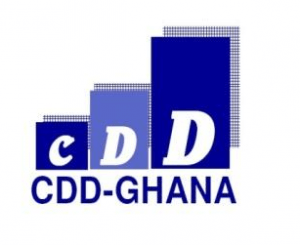China is a key player in Ghana’s development agenda – CDD Ghana
 China has become a key player in Ghana’s development agenda, Dr Edem Selormey, the Director of Research, Ghana Centre for Democratic Development (CDD Ghana), has said.
China has become a key player in Ghana’s development agenda, Dr Edem Selormey, the Director of Research, Ghana Centre for Democratic Development (CDD Ghana), has said.
She indicated that a study conducted by the Centre had revealed that China was now a significant player in Ghana’s transformative development agenda, which could be seen in Ghana’s aggressive socio-economic development agenda.
Dr Selormey said this in her presentation at the International Republican Institute (IRI|) Building Resilience for Interconnected Democracies in Global Environment (BRIDGE) Initiative Ghana virtual workshop.
The IRI is an American nonprofit, nonpartisan organization committed to advancing freedom and democracy worldwide by helping political parties to become more issue-based and responsive, assisting citizens to participate in government planning, and working to increase the role of marginalized groups in the political process – including women and youth.
She noted that when it came to development aid, China’s influence in Ghana had been felt in the rail, road, energy, and road infrastructure sectors of the economy.
Dr Selormey said China-Africa’s growing relationship was manifested in terms of trade and investment and new policy interest in China as an alternative development partner to the West.
She recalled that since 2012, China had signed several loan agreements with Ghana including a $13 contract with the China Development Bank and a $9 million Export Exim Bank deal to finance the country’s development agenda.
With regard to the Information, Communication, and Technology (ICT) sector, Dr Selormey said since 2007 China had been helping Ghana meet its objective of improving telecommunication services and integrating ICT into its development.
On some major projects, which were being funded with the support of China, she said China had provided a concessionary loan of $30 million to support the first phase of Ghana’s National Communication Backbone and E-Governance Project.
Concerning China’s influence on Ghana, Dr. Selormey said Ghana’s political, democracy, governance practices, and actors could serve as a buffer against China’s malign influence.
She said there was an increase in the level of Parliamentary scrutiny of most Chinese loans, the recent one being a three-billion-dollar loan from China for an oil and gas corridor project, which saw a lot of debate in Parliament.
Dr Selormey noted that the voices of civil society organizations (CSOs) and media in the public place drew attention to most of the things that were opaque to ordinary citizens, to the Ghana-China relationship, and said it was good.
She also commended the strong media voice in the fight against the involvement of Chinese citizens in the destructive illegal small-scale mining in Ghana’s rural communities.
Dr. Selormey said to build resilience to China’s potential malign influence on Ghana’s democracy, accountability, and long-term economic prospects, it was necessary to strengthen Parliament’s oversight role by building capacity for Finance and Budget Committees of Parliament to scrutinize loan agreements involving Ghana and China appropriately.
She said there was also the need to build the capacity of state anti-corruption agencies to undertake a corruption risk analysis of transactions between the Governments of Ghana and China.
Dr Selormey called for support to strengthen civil society and media capacity to interrogate and highlight the potential effect of the China-Ghana partnership on Ghana’s politics, governance, and the information space.
At the virtual workshop, Mr Bright Ackwerh, an Artist and Political Satirist presented some of his works on China-Ghana and China-Africa relations.
Source: GNA
